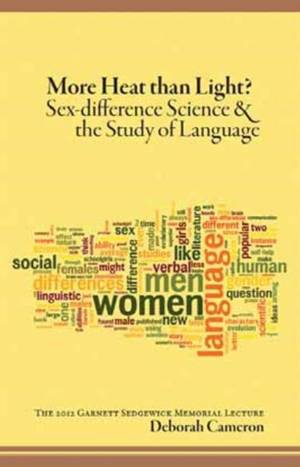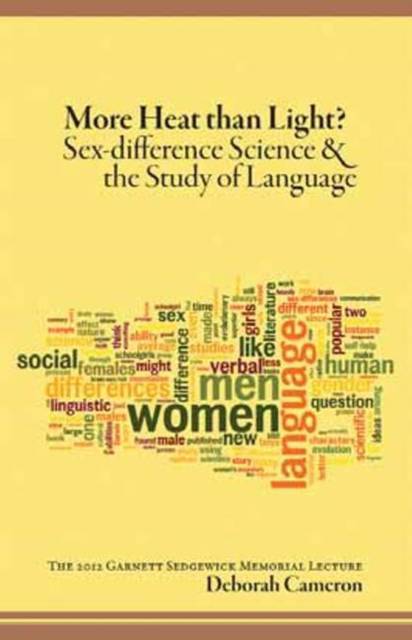
- Afhalen na 1 uur in een winkel met voorraad
- Gratis thuislevering in België vanaf € 30
- Ruim aanbod met 7 miljoen producten
- Afhalen na 1 uur in een winkel met voorraad
- Gratis thuislevering in België vanaf € 30
- Ruim aanbod met 7 miljoen producten
Zoeken
€ 15,45
+ 30 punten
Omschrijving
In the Sedgewick lecture for 2012, Professor Deborah Cameron investigates the age-old question of whether men and women are different kinds of beings, both physically and intellectually. She begins by noting that in the 19th century that most writers saw men as being intellectually superior to women in their use of language. But she also observes that this position was gradually modified in the 20th century, that is, until the 1990s, when there was a sudden resurgence of the essentialist idea, this time with many writers concluding that women were programmed to be the better language users. Cameron examines closely the claims of a number of popular self-help books on the subject, and then proceeds to show how many of the more supposedly scientific books rely on a form of "neurobabble" to make similar claims about the alleged hard-wired intellectual differences between men and women. The question then becomes, why is it that this essentialist view has caught on? Cameron suggests that it is in part a way of responding to the pervasive anxiety brought about by massive social changes in the roles of men and women. She also cautions that this new essentialism is having potentially drastic consequences on the theories and practice of how boys and girls, men and women, are educated.
Specificaties
Betrokkenen
- Auteur(s):
- Uitgeverij:
Inhoud
- Aantal bladzijden:
- 34
- Taal:
- Engels
- Reeks:
Eigenschappen
- Productcode (EAN):
- 9781553802211
- Verschijningsdatum:
- 15/02/2013
- Uitvoering:
- Paperback
- Formaat:
- Trade paperback (VS)
- Afmetingen:
- 146 mm x 229 mm
- Gewicht:
- 453 g

Alleen bij Standaard Boekhandel
+ 30 punten op je klantenkaart van Standaard Boekhandel
Beoordelingen
We publiceren alleen reviews die voldoen aan de voorwaarden voor reviews. Bekijk onze voorwaarden voor reviews.











